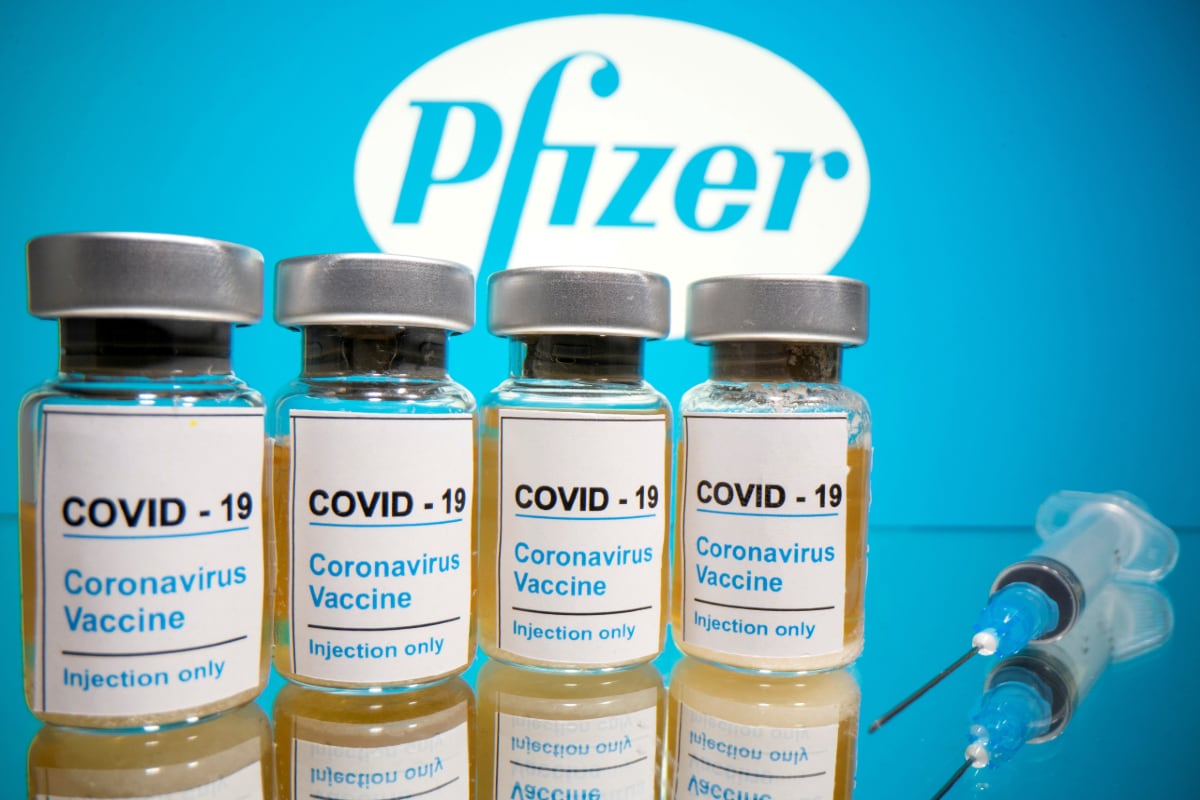
Britain on Wednesday became the first country in the world to approve the Pfizer-BioNTech vaccine for use against COVID-19 and said that it will be implemented starting next week.
and said that it will be implemented starting next week.
“The Government today accepted the recommendation of the Independent Medicines and Health Products Regulatory Agency (MHRA) to approve the Pfizer-BioNTech standards COVID-19 vaccine for use, “the government said.” The vaccine will be available throughout the UK from next week. “
vaccine for use, “the government said.” The vaccine will be available throughout the UK from next week. “
Health Secretary Matt Hancock said the program would begin early next week. “This is very good news,” Hancock said.
Britain’s approval of the vaccine marks a “historic moment” in the battle against the pandemic, the chief executive of the US pharmaceutical group said on Wednesday, after his company obtained the first such authorization in the West.
“Today’s emergency use authorization in the UK marks a historic moment in the fight against COVID-19 “said Albert Bourla, CEO of Pfizer, adding,” We are focusing on moving forward with the same level of urgency to safely deliver a high-quality vaccine around the world.
“said Albert Bourla, CEO of Pfizer, adding,” We are focusing on moving forward with the same level of urgency to safely deliver a high-quality vaccine around the world.
The US company and the German company BioNTech said they expected new regulatory decisions from other countries “in the coming days and weeks.”
Pfizer said it would immediately begin shipping limited supplies to the UK, and has been preparing for even wider distribution if the US Food and Drug Administration gives it a similar go-ahead, a decision that is expected. for next week.
But doses everywhere are in short supply and initial supplies will be rationed until more are made in the first months of next year.
While the UK has ordered enough Pfizer vaccines for 20 million people, it’s unclear how many will arrive by the end of the year and, in addition to distribution challenges, it must be stored in extremely cold temperatures.
Two doses three weeks apart are required for protection. First in line, the UK government says, are frontline healthcare workers and nursing home residents, followed by older adults.
But Prime Minister Boris Johnson warned that we must first go through a harsh winter of restrictions to try to curb the virus until there is enough vaccine.
Each country has different rules for determining when an experimental vaccine is safe and effective enough for use. Intense political pressure to be the first to launch a rigorously scientifically proven shot colored the race in the United States and Britain, even as researchers vowed not to take shortcuts. On the contrary, China and Russia have offered different vaccines to their citizens before the last stage tests.
The injections made by Pfizer and BioNTech were tested in tens of thousands of people. And although that study is not complete, the first results suggest that the vaccine is 95% effective in preventing COVID-19 disease. The companies told regulators that of the first 170 infections detected in study volunteers, only eight were among people who had received the real vaccine and the rest had received a fake injection.
disease. The companies told regulators that of the first 170 infections detected in study volunteers, only eight were among people who had received the real vaccine and the rest had received a fake injection.
“This is extraordinarily strong protection,” said Dr. Ugur Sahin, CEO of BioNTech, recently.
The companies also reported no serious side effects, although vaccine recipients may experience temporary pain and flu-like reactions immediately after the injections.
But experts warn that a vaccine approved for emergency use is still experimental and the final test must be completed. It remains to be determined whether Pfizer-BioNTech injections protect against people who spread the coronavirus showing no symptoms. Another question is how long the protection lasts.
showing no symptoms. Another question is how long the protection lasts.
The vaccine has also been tested in a small number of children, none younger than 12 years old, and there is no information on its effects in pregnant women.
(With inputs from agencies)
.